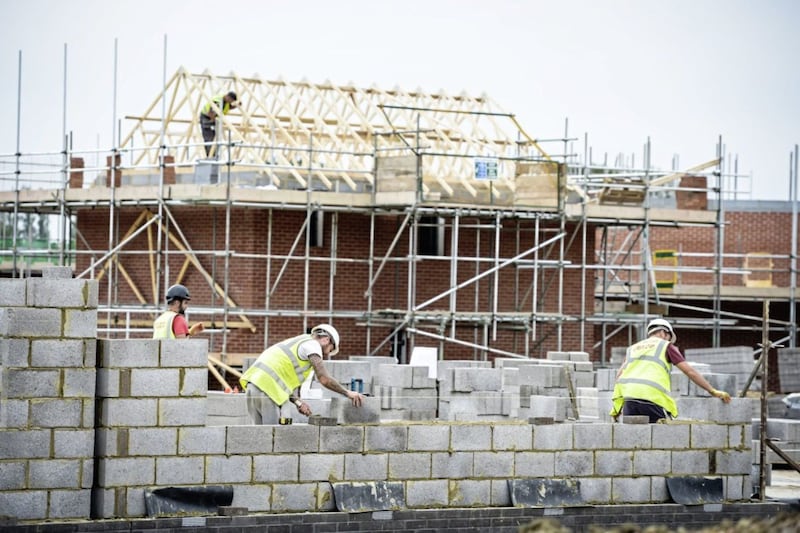THIS month a decade ago, lines of customers outside Northern Rock branches created some of the most memorable images of the financial crisis. They also symbolised how the crisis – which was created by the sub-prime mortgage problems in America - had moved from Wall Street to high streets closer to home.
In Northern Ireland, this time 10 years ago also represented the quarter when house prices peaked after the hyper-inflation of the preceding years, and began their very significant correction. The collapse in property values would likely have happened anyway, but events in financial markets certainly didn’t help.
A decade on, house prices have recovered some of their value - they remain on average some 40 per cent below peak prices - but many of the scars of events in 2007 remain. One of them is the legacy of the downturn in the construction sector.
Construction had been one of the growth industries leading up to the autumn of 2007. The Northern Ireland housing market boom was one factor, but so was activity south of the border, with the ‘Celtic Tiger’ providing much work for firms from this part of the island. But with the end of the housing boom in the north and the economic collapse in the south, work very much dried up.
Official figures show that the construction sector in Northern Ireland was the most severely impacted both in terms of output and jobs after the economic downturn. Construction output peaked in 2007 and was the first sector in Northern Ireland to experience a slowdown. After that, the construction sector experienced a consistent general downward trend in output.
Current levels of construction output are approximately one third lower than the levels reported 10 year ago.
As well as the impact on output, the downturn in construction also impacted on the sector’s labour market, with the number of jobs and self-employment well down on peak levels. Figures from the Northern Ireland Labour Market Report estimate that the number of employee jobs in the construction sector in Northern Ireland has fallen by over a third since 2007.
There are some indications of more positivity in the sector, with cranes evident in the skies of Belfast. Figures from a number of sources suggest that house building is also on the rise, which is important in helping increase housing supply. Many of our construction firms and works have also been meeting with success outside of Northern Ireland – winning work in GB and elsewhere. But one of the big challenges remains the lack of work at home – particularly public projects.
Indeed, the most recent RICS and Tughans Construction Market Survey indicated that surveyors’ infrastructure workloads were still falling in the second quarter of this year. The latest official construction output figures also show that infrastructure activity continues to fall.
A lack of investment in infrastructure in Northern Ireland is a long-standing issue and one that needs to be addressed for the sake of the future competitiveness of the economy. The recently announced additional money for Northern Ireland from Westminster should provide a welcome boost for infrastructure investment when it comes through. But we also want to see a local Executive in place to ensure the delivery of long-term policies and decision-making that are vital to the development and growth of the economy.
Ten years on from the onset of the financial crisis, its legacy lives on, and we have various new issues to deal with too – including Brexit and the potential impact on our land border. Some of these issues aren’t within Northern Ireland’s control. Having a working Executive, and appropriately investing the money we have in the best interests of the local economy is.
:: Susan Mason is acting director of the Royal Institution of Chartered Surveyors (RICS) in Northern Ireland, the principal independent body representing professionals employed in the land, property and construction sectors.








